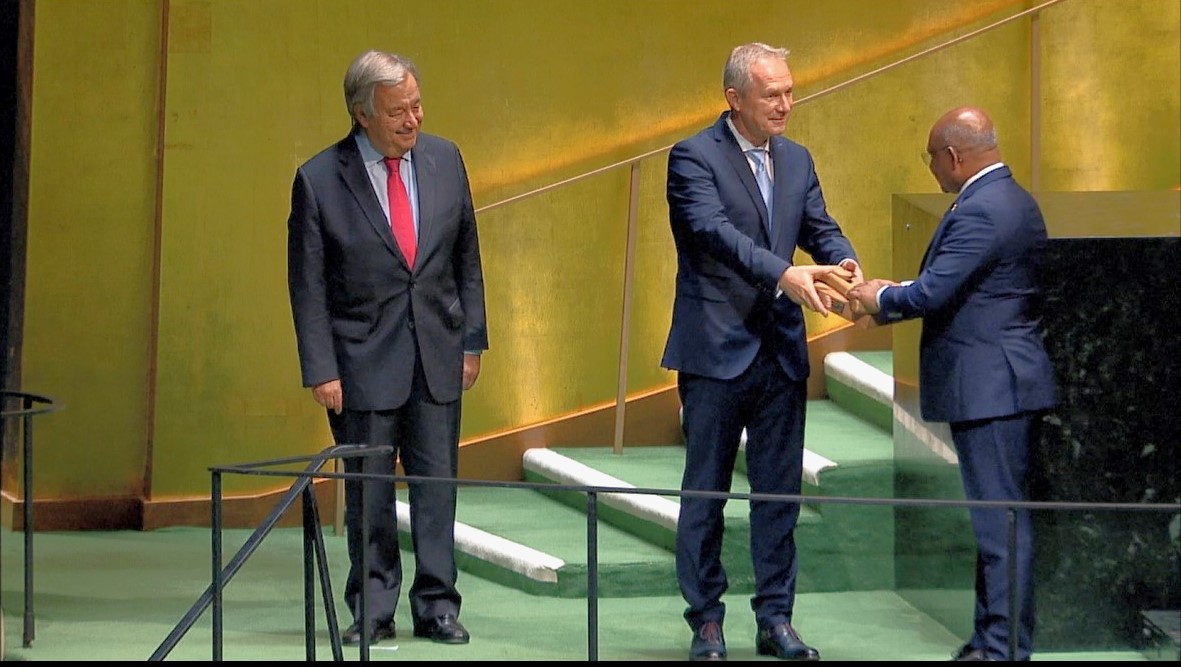
Csaba Kőrösi of Hungary took oath of office today as the President of the 77th United Nations General Assembly. His presidency will highlight “solutions through solidarity, sustainability and science.”
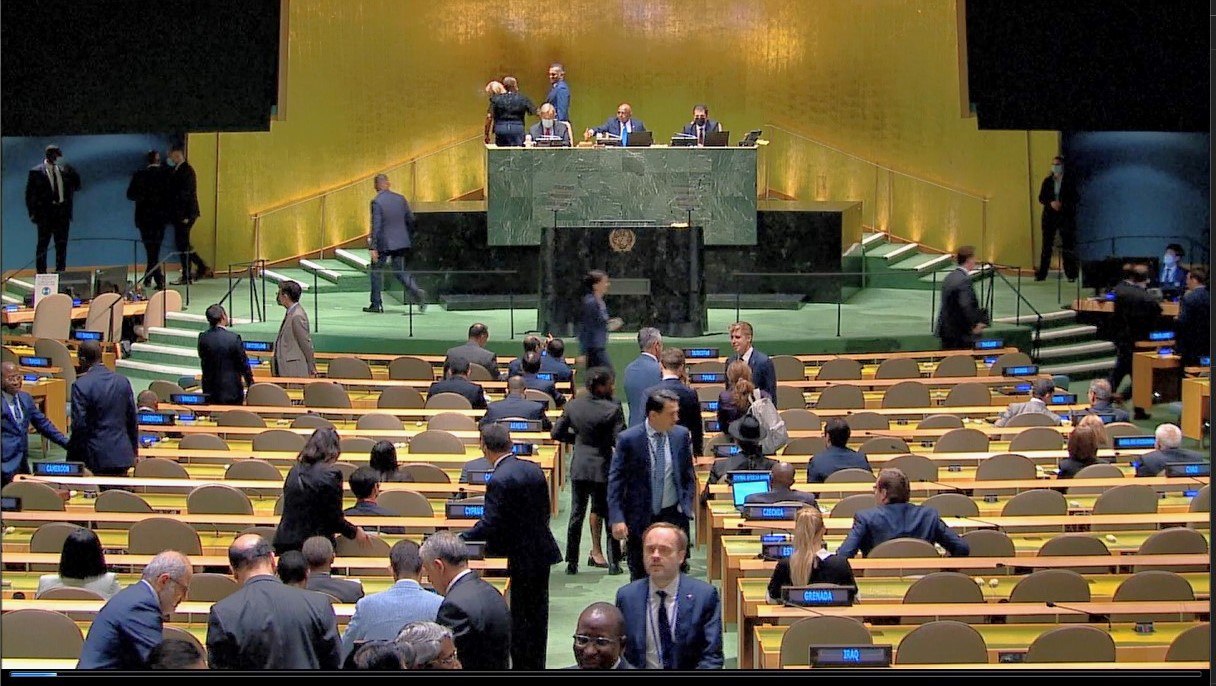
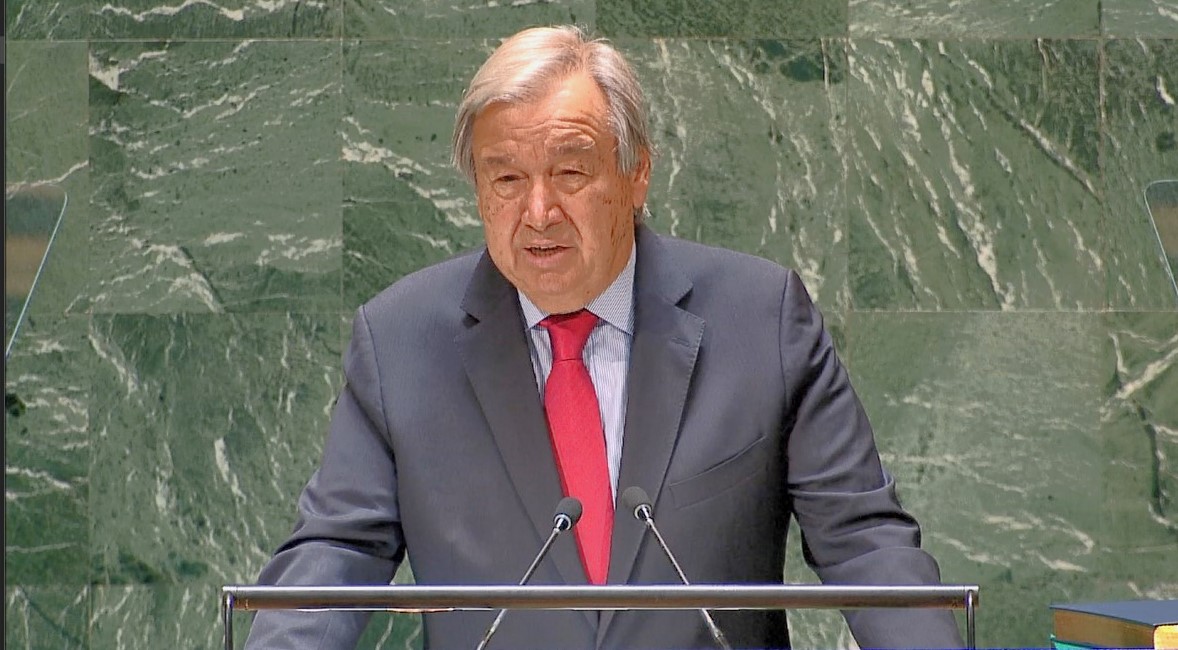
António Guterres highlighted “rising prices, the erosion of purchasing power, growing food insecurity and the gathering shadows of a global recession. A global pandemic that refused to be defeated — and the emergence of another health emergency in monkeypox. And deadly heatwaves, storms, floods and other natural disasters.”
The UN chief also mentioned the situation in Pakistan, where he was over the weekend, saying “it’s unimaginable to see a flooded area that is three times the size of my own country, Portugal, and the suffering of the place that is taking place.”
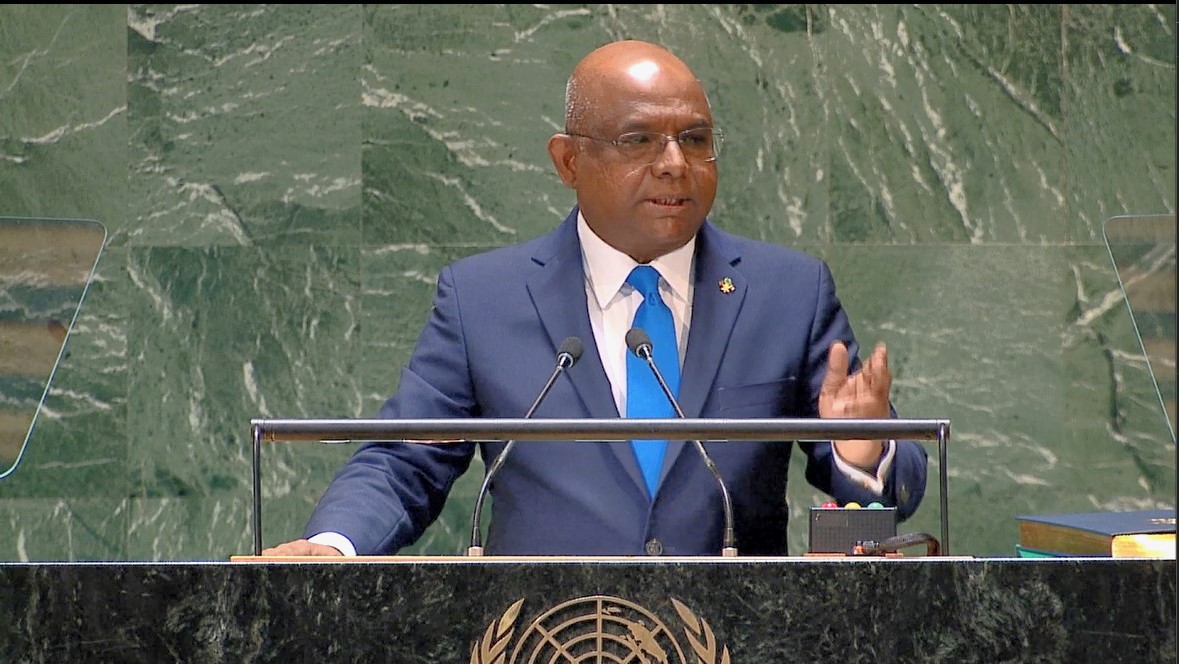
On his last meeting as President of the General Assembly, Abdulla Shahid said he had “promised a presidency of hope built on five rays of hope: recovering from COVID-19, rebuilding sustainably, responding to the needs of the planet, respecting the rights of all and revitalizing the United Nations.”
“And every day for the past 365 days my team and I worked to deliver this vision. We convened 103 former plenary meetings, adopted 307 resolutions and 140 decisions”, Shahid said.
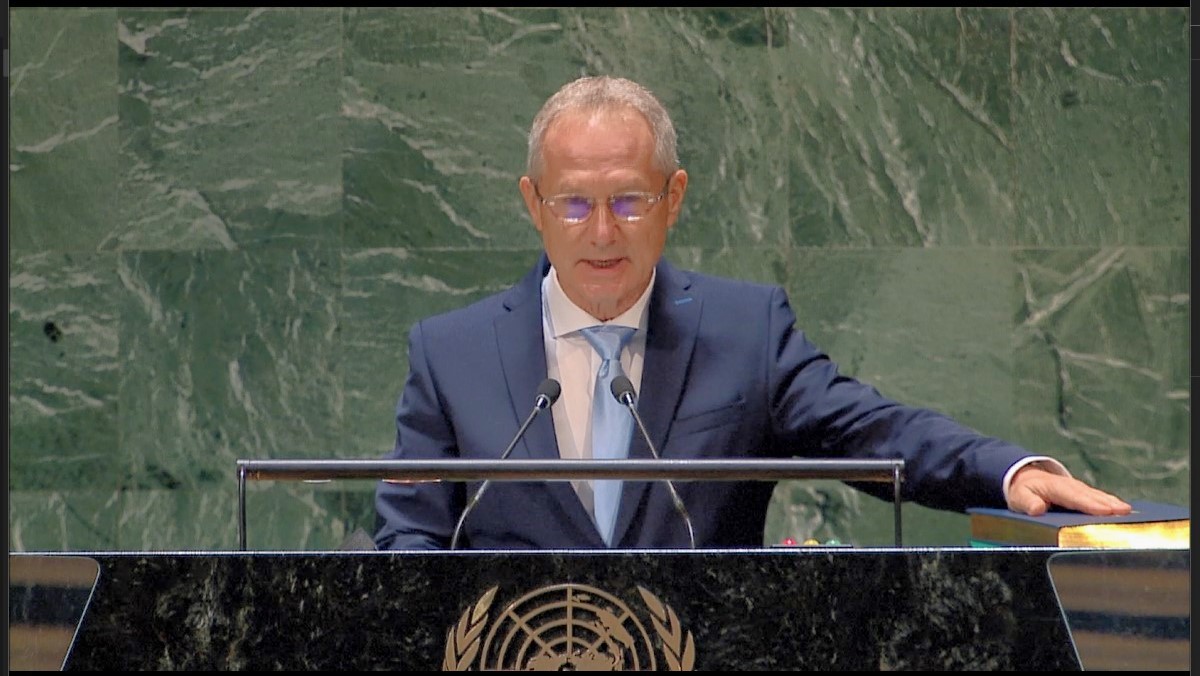
Speaking to journalists today (12 Sep) in New York after taking his oath of office, Kőrösi also informed that this years’ theme for the General Debate will be “A watershed moment: transformative solutions to interlocking challenges”.
Kőrösi said the international community “must continue to reform and transform the United Nations, including the General Assembly, and strengthen our cooperation trough trust.”
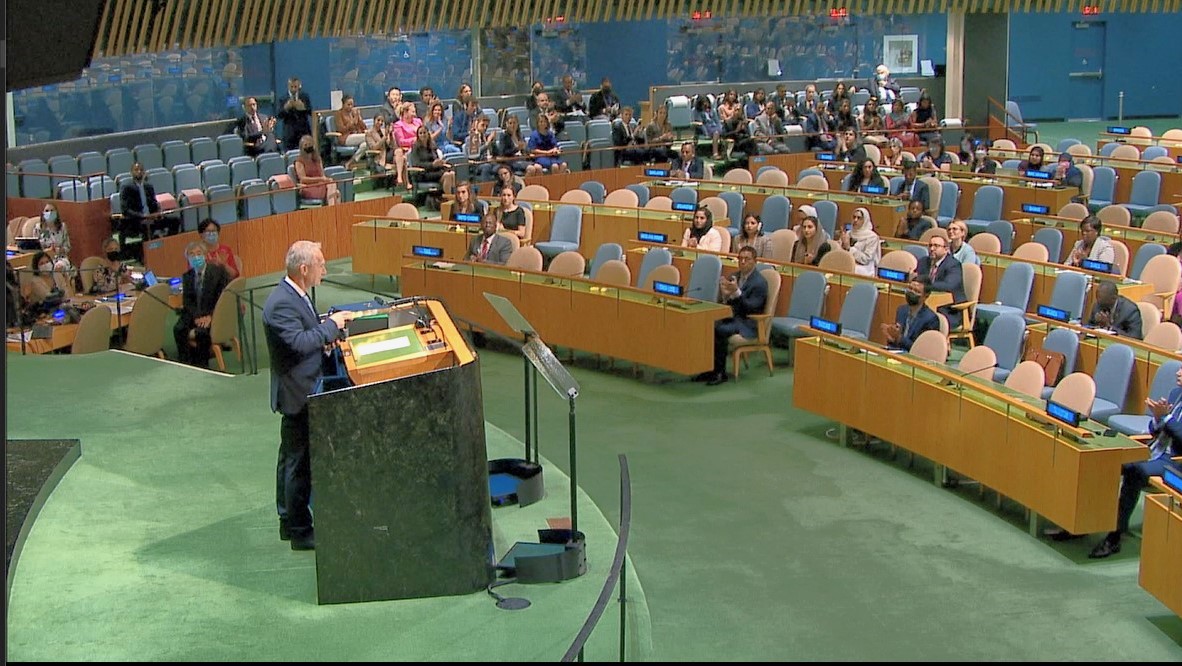
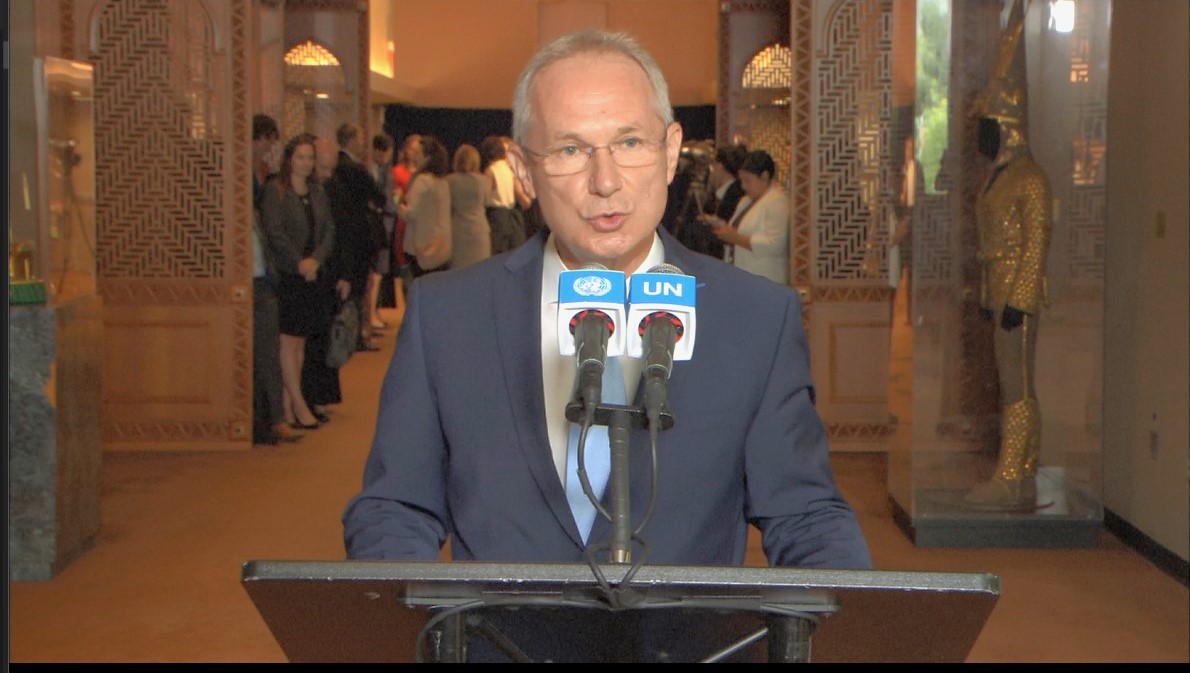
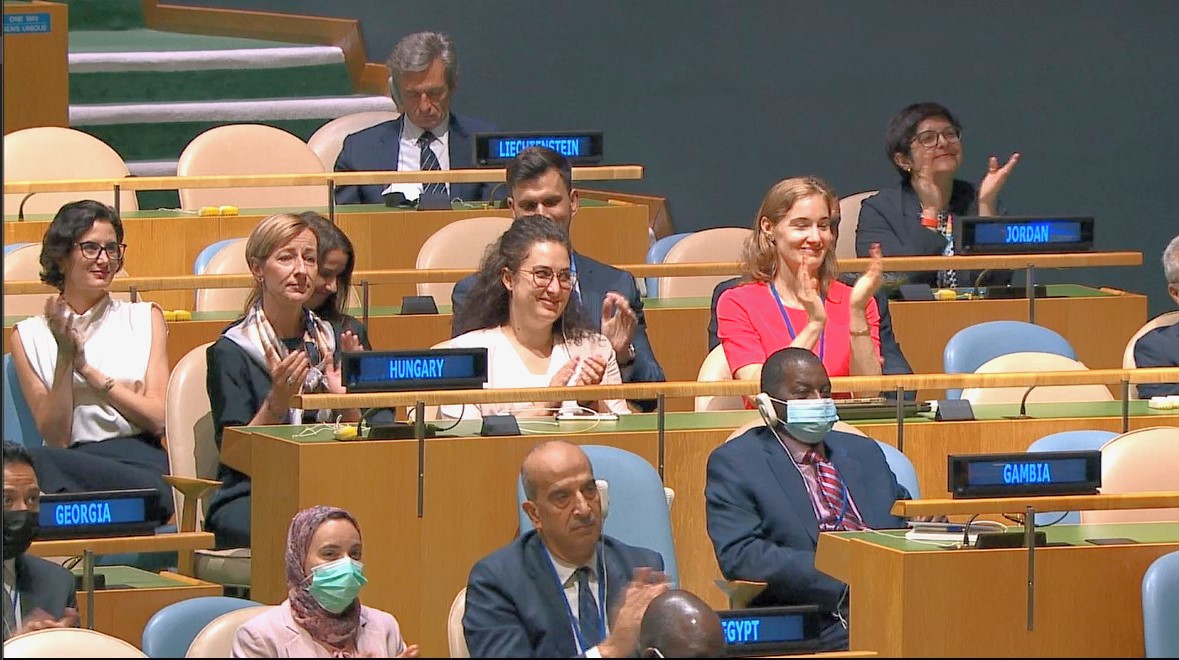
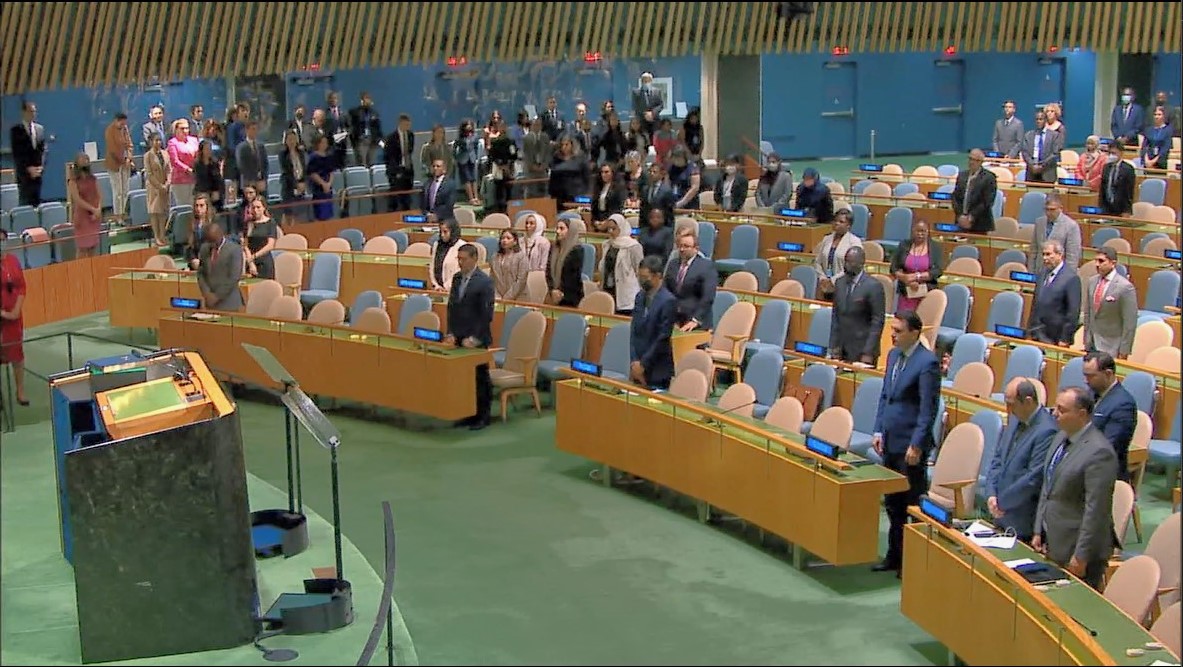

Also today, opening the last meeting of the 76th session, the Secretary-General said the last 12 months were marked “by a series of deepening challenges.”
For the Secretary-General, “the coming session will continue to test the multilateral system like never before. And it will continue to test cohesion and trust among Member States. The road ahead will be challenging and unpredictable. But by using the tools of our trade — diplomacy, negotiation and compromise — we can continue supporting people and communities around the world. We can pave the way to a better, more peaceful future for all people.”
 Celebrity Media TV
Celebrity Media TV









